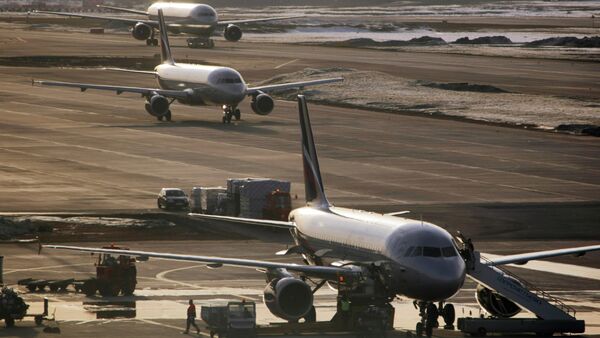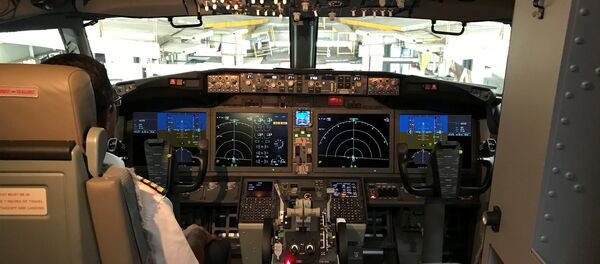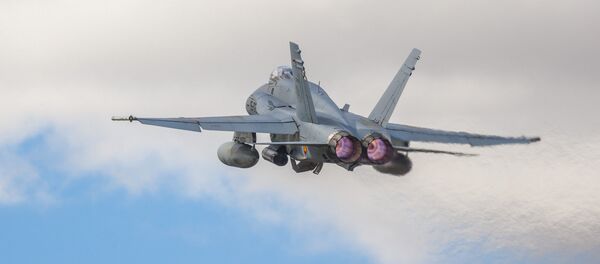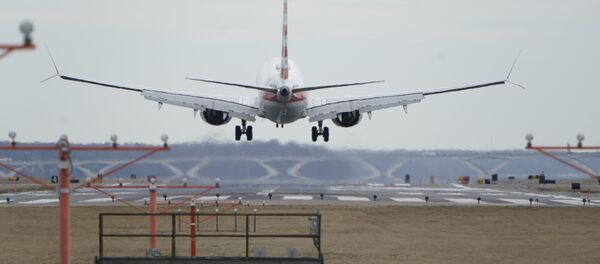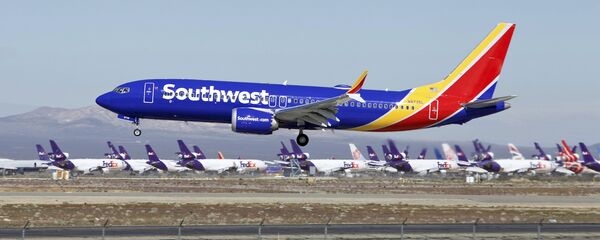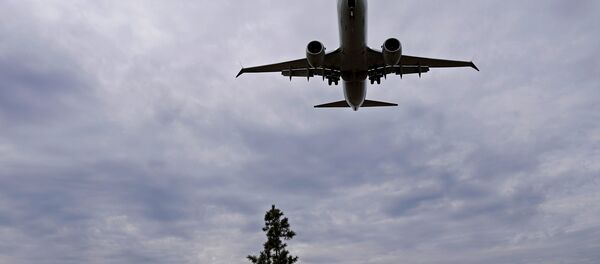The preliminary findings were based on a data retrieved from the black boxes that were aboard the Ethiopian Airlines flight, The Wall Street Journal has reported. Boeing has announced a fix for its Maneuvering Characteristics Augmentation System (MCAS), software designed to help prevent the 737 Max 8 from stalling, which may be linked to the crash of both the Ethiopian Airlines flight and the crash of Lion Air flight last October.
Meanwhile, the Bank of America Merrill Lynch said in its recent bulletin for investors that the US-based aircraft manufacturer Boeing could lose $2.4 billion in 2019 due to the deadly consequences of two of its 737 MAX aircraft crashing over the span of just five months. According to the Bank of America Merrill Lynch, because of the 737 MAX accidents, its direct competitor, Airbus Neo, could be sold at a big premium.
Sputnik has discussed the issue with Dr. Kyriakos Kourousis, a senior academic in airworthiness at the University of Limerick in Ireland.
Kyriakos Kourousis: Firstly, the technical investigation for the two B737MAX accidents is currently underway.
Two different investigation bodies, two different authorities are involved in these. It is expected to take some time before the facts are compiled, analyzed and coherent conclusions are drawn. The process is usually slow and in this case, I believe it’s going to be slower, due to potential legal implications.
As such, at this point, we can’t talk about problems but potential issues that affect the technical and operational airworthiness of the B737MAX fleet, yet to be confirmed. Now on the second part of the question, on potential problems on the military branch of Boeing’s business.
Sputnik: According to the Seattle Times, in 2015, during the certification of the Boeing 737 MAX, the Federal Aviation Administration passed conducting a safety assessment of the new aircraft on to Boeing itself. How justified is the FAA's decision to delegate safety verification responsibilities to the manufacturer?
Kyriakos Kourousis: The evidence used during the certification of any aircraft, such as analyses, calculations, test results, etc, are produced by the manufacturer.
This evidence is then furnished to the regulating authorities (such as FAA and EASA) towards checking for compliance against the applicable safety regulations.
As such, it is not a matter of delegation of responsibilities but a process we expect to see in any aircraft certification exercise, according to the provisions of the civil aviation regulations.
Sputnik: According to the security engineers mentioned in the Seattle Times article, the analysis of 737 MAX safety included significant flaws. In your opinion, did Boeing really ignore safety requirements?
Kyriakos Kourousis: This remains to be examined by the authorities controlling the operation of the FAA, if these claims are
indeed credible and warrant an investigation.
Patience is important, especially for the media correspondents, as there is a great deal of unverified information circulating the web, doing a disservice to the aviation industry.
Sputnik: In 2018 Boeing won several billion dollars’ worth of contracts with the US Air Force: a $9.2 billion contract to produce the US Air Force’s next-generation training jet, an $805 million contract to build the US Navy’s first four MQ-25 unmanned tankers, and a contract worth up to $2.38 billion to manufacture a replacement for the USAF’s Huey helicopter. How will the recent technical and safety-related problems affect cooperation with the US Air Force this year?
Kyriakos Kourousis: Boeing, as a major aircraft manufacturer, has long standing expertise and experience in civil and military aviation. I would not expect the B737MAX situation, especially at this stage, to affect either directly or indirectly the military contracts.
Each program, such as the ones mentioned here, is subject to an independent design and certification process.
All issues affecting airworthiness during the program lifespan are systematically identified, analyzed and mitigated according to the applicable safety standards and regulations.
Kyriakos Kourousis: The B737MAX is indeed a market competitor of the A321LR (long range variant). Typically we see that kind of competition between various Boeing and Airbus models.
Competition between these two major civil aircraft manufacturers is a positive thing to have in the aviation industry. It drives better technology, cost efficiencies, etc. Having said that, shortcuts for the sake of competition in safety certification is not something we expect or have seen before and that’s something that the aviation industry is proud of.
Therefore, the expressed opinion/view that technical flaws can or have been be covered up needs to be substantiated before any serious discussion can take place. I am very skeptical of such claims made, especially at this stage.
Sputnik: How do you assess the level and experience of pilots flying for Boeing? Are there any
shortcomings in the learning process?
Therefore, pilots flying Boeing, Airbus, etc commercial aircraft undergo rigorous training and assessment of their knowledge and skills. As part of this system, any shortfalls (either in theoretical or practical aspects) are quickly identified and addressed.
That’s the general situation. Whether there are particular issues in the case of the B737MAX, these, again, will be the subject of the in-progress technical investigations by the various entities involved.
Views and opinions expressed in this article are those of Kyriakos Kourousis and do not necessarily reflect those of Sputnik.
